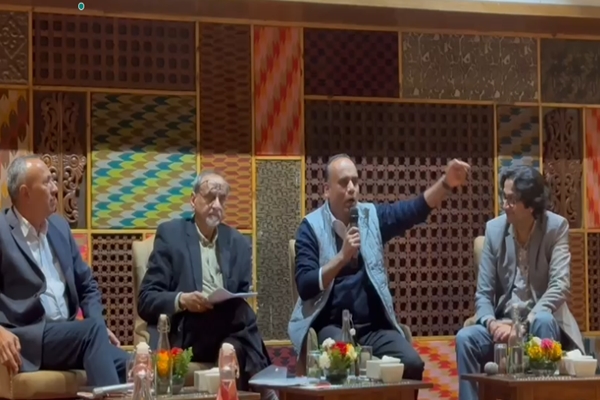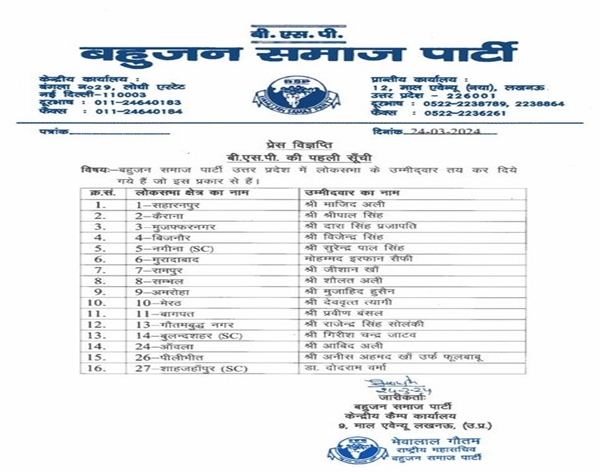As Prime Minister of Nepal K P Sharma Oli is to proceed in an official visit to China amid public apprehension of China using BRI as a debt trap for Nepal, the Centre for Social Innovation and Foreign Policy (CESIF) organised a National Seminar on Navigating Strategic Implications of BRI for Nepal. It discussed the strategic opportunities and challenges posed by China’s Belt and Road Initiative (BRI). Focusing on BRI’s geopolitical significance for the country, the seminar sought to generate consensus on Nepal’s priorities to maximise the Initiative’s benefits while safeguarding Nepal’s national interests.
China is using BRI as a strategic tool to advance its vision for an alternative world order. International Relations experts in Nepal view the BRI Implementation Plan as not just an infrastructure development plan but a comprehensive strategic framework, which must be negotiated on every individual project basis with a detailed assessment of their social, political, economic, and strategic consequences for Nepal.
In the seminar, Dr Prakash Sharan Mahat, Former Minister for Foreign Affairs of Nepal, echoed the observation that BRI is China’s strategic tool to globalise its engagement and increase its presence and influence to achieve its national interests and broader visions. Nepali Congress is of the view that Nepal should not accept loans under the Initiative, especially when China has yet to deliver on its several grant commitments to Nepal.
Keynote speaker Pradeep Gyawali, Former Minister for Foreign Affairs of Nepal also emphasized the need for sufficient discussions on important bilateral and multilateral agreements, especially in its dealings with the neighboring countries and superpowers, before committing to agreements with long-term consequences. “Instead of assessing where Nepal’s interests and priorities align with the Chinese Initiative and how to benefit from it, our discussions and debates have been limited to a loan versus grant narrative,” he stated, “nevertheless, Nepal should not accept loans to advance any large infrastructure project under current circumstances.”
Speakers cited the example of Pokhara International Airport, where Nepal must consider some serious concerns, such as debt sustainability, lack of transparency, and geopolitical implications of the BRI-funded projects. Nepal should not sign the Implementation Plan without proper and transparent discussions.
CESIF brought together experts and practitioners to discuss various dimensions of BRI in two different panels. The first panel included speakers Dr. Govinda Raj Pokharel, Former Vice Chairperson of the National Planning Commission of Nepal, Amb. Madhuraman Acharya, Former Foreign Secretary and Foreign Policy Expert, and Mr. Bishnu Rijal,Central Committee Member, CPN-UML, and was moderated by Amb. Vijay Kant Karna. The discussion centered on BRI’s negotiations and their strategic implications for Nepal. Amb. Acharya characterized BRI in Nepal as a “classic case of how not to negotiate,” as it featured negotiation under duress, top-down negotiations, and politicization. “BRI Implementation Plan is essentially an explanation or formalization of the ‘strategic partnership’ between Nepal and China, agreed during Xi Jinping’s Nepal visit in 2019,” he contended, “such a comprehensive agreement should not be signed in haste, without negotiating on Nepal’s national interests.”
Dr. Govinda Raj Pokharel, Former Vice Chairperson of the National Planning Commission, emphasised that Nepal’s top priority should be on securing a trade route with China. Bishnu Rijal, Central Committee Member, CPN-UML, discussed the necessity of external borrowing for Nepal to meet its growth targets because Nepal cannot sustain major projects with internal resources alone. The BRI Implementation Plan is essentially an explanation or formalisation of the ‘strategic partnership’ between Nepal and China, agreed upon during Xi Jinping’s Nepal visit in 2019. Rijal also highlighted the historical ties between Nepali and Chinese communists and dispelled concerns about potential policy infiltrations, arguing that these relationships do not compromise Nepal’s policy-making autonomy.
More than a hundred participants including policymakers, politicians, national and international experts, analysts, academics, diplomats, bureaucrats, and journalists attended the event.















